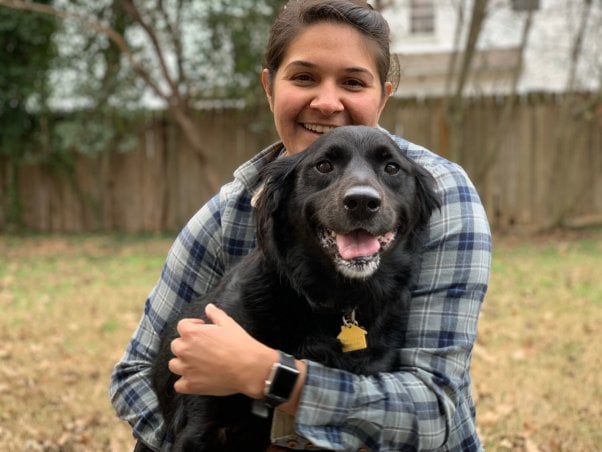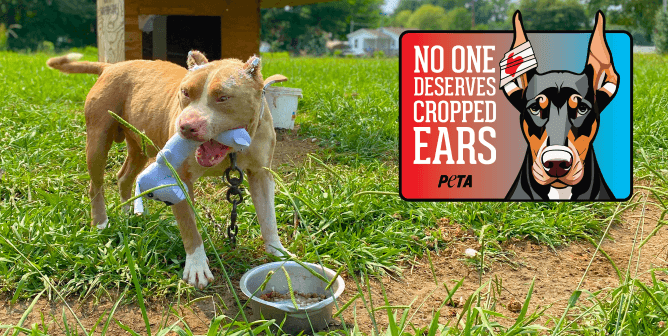If goldfish companions could choose a city to call home, chances are they’d want to live in Rome—but not because they want to see the Colosseum or the Sistine Chapel. It’s because the Eternal City has passed some of the most progressive companion animal protection laws in the world. It famously made it illegal to confine goldfish to round bowls because they don’t provide these sensitive, intelligent animals with the space, mental stimulation, climate control, or oxygen that they need—and they may even cause them to go blind. It also banned the cruel practice of giving away goldfish as “prizes”—which often causes fish to suffer and die prematurely at the hands of people who aren’t prepared to care for them.
As humans’ understanding of the animals we keep as companions evolves and we begin to appreciate them more and respect their unique needs and rights, cities and countries around the world are passing laws that reflect this.
Rome, for example, also requires dog guardians to walk their pups daily—or pay a $625 fine—and banned cruel practices such as leaving animals in hot cars, displaying them in store windows, using choke or shock collars, and subjecting them to painful, unnecessary mutilations such as tail-docking, ear-cropping, and declawing. “We needed to send a strong message: [Animals] are not objects,” explained Cristina Bedini of Rome’s animal rights office.
Rome isn’t the only place to acknowledge that robbing animals of their body parts is cruel and wrong. Earlier in 2019, New York became the first state to ban declawing, and the cruel procedure has also been outlawed in Denver and three cities in California (Los Angeles, San Francisco, and West Hollywood) as well as in Australia, Brazil, England, Israel, and Japan—and for good reason. Painful and traumatic, declawing cats is the equivalent of cutting off part of a human’s fingers.
And just as cities are recognizing that cats need to scratch, they’re increasingly realizing that animals’ social needs are important and passing laws requiring guardians to provide them with species-appropriate companionship. In Maumelle, Arkansas, it’s against the law to keep a bird caged alone (in most cases), and in Switzerland, parrots can be considered victims of abuse if they don’t live with or get regular social contact with other parrots. It’s also illegal in that country to keep a solitary guinea pig, because companionship is so vital for these highly social beings that they can actually die of loneliness.
Berlin made headlines when it created a “driver’s license for dogs,” which—despite that description—doesn’t allow canines to operate motor vehicles but rather protects them by requiring that most are leashed while on walks unless they pass a training test. It’s a commonsense measure that protects dogs from running into traffic and being exposed to other dangers.
It’s encouraging to see cities and even entire countries making laws that honor basic rights and provide protections for animals who are kept as companions. But it’s a big world, and in many areas, animals still have few or no legal protections. They shouldn’t have to wait for laws to catch up before they’re provided with the basic care that they deserve. They need kind people to speak up for them right now.
It starts with each of us. Take the time to learn more about your animal companions’ needs—PETA’s companion animal section is a great place to start—and honestly consider whether you could be making their lives happier, less stressful, and more fulfilling. There’s always room for improvement—whether it’s getting up 30 minutes early to take dogs for an extra walk before work (and letting them stop and sniff the hydrants for as long as they want!), installing a window perch to give kitties something interesting to look at during the day, or adopting (not buying) a compatible companion for a lonely bird or guinea pig.
Animals also benefit when we spread the word about their needs and help people in our circle of influence better understand and care for their own animal companions. For example, if you visit a neighbor and see a lonely goldfish languishing in a bowl, you could change that animal’s life by gently explaining that goldfish need companionship, room to swim, hiding places, filtration, and temperature control and encouraging your neighbor to provide these things.
You can also make a big impact by urging those in positions of power to advocate on behalf of animals. Ask shelters and adoption groups to stop advertising dogs who’ve endured long-term confinement as “crate trained,” because this suggests that adopters should perpetuate that sort of cruelty. Ask your veterinarian to inform clients about their animal companions’ social and emotional needs as well as their physical ones. And lobby your local elected officials to pass stronger laws that protect the animals whose happiness and well-being depend entirely on their guardians.










